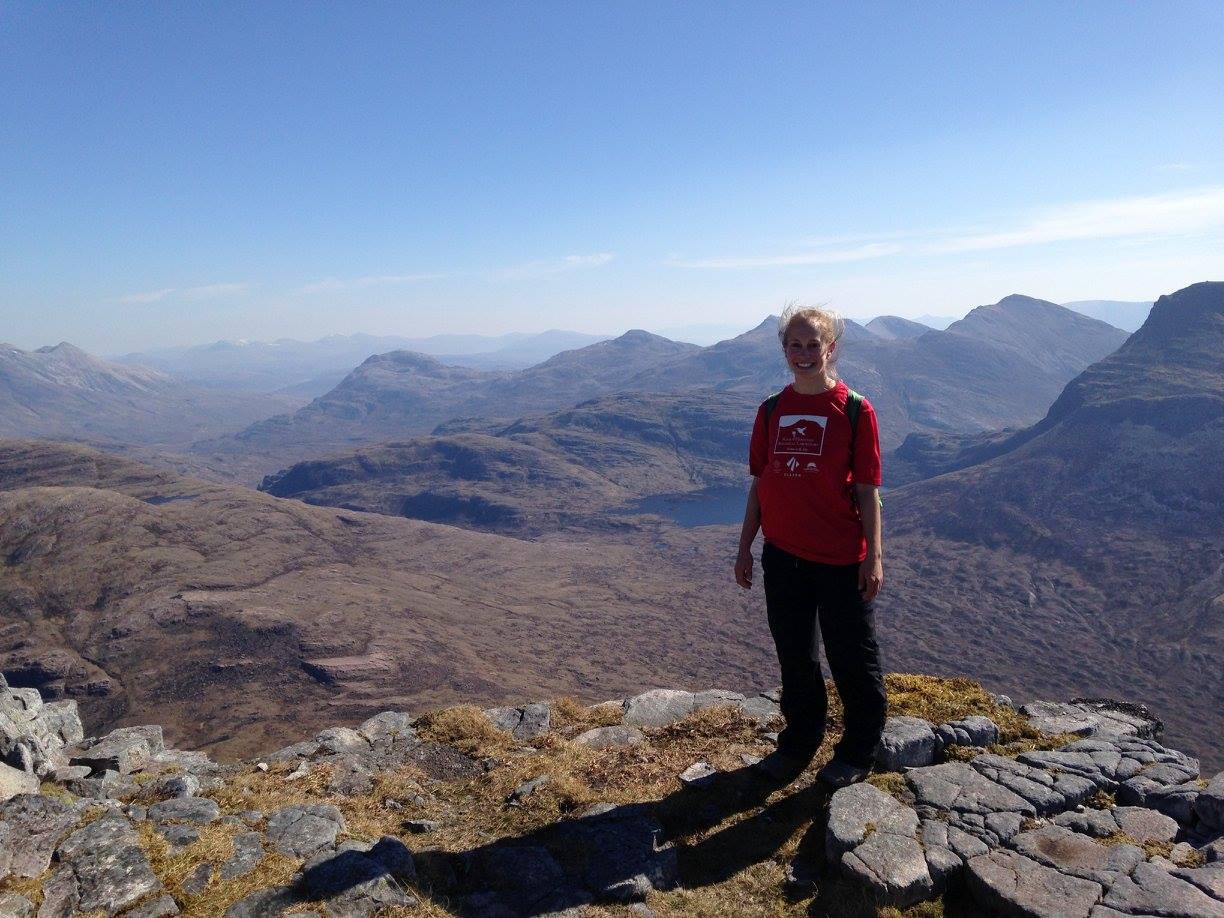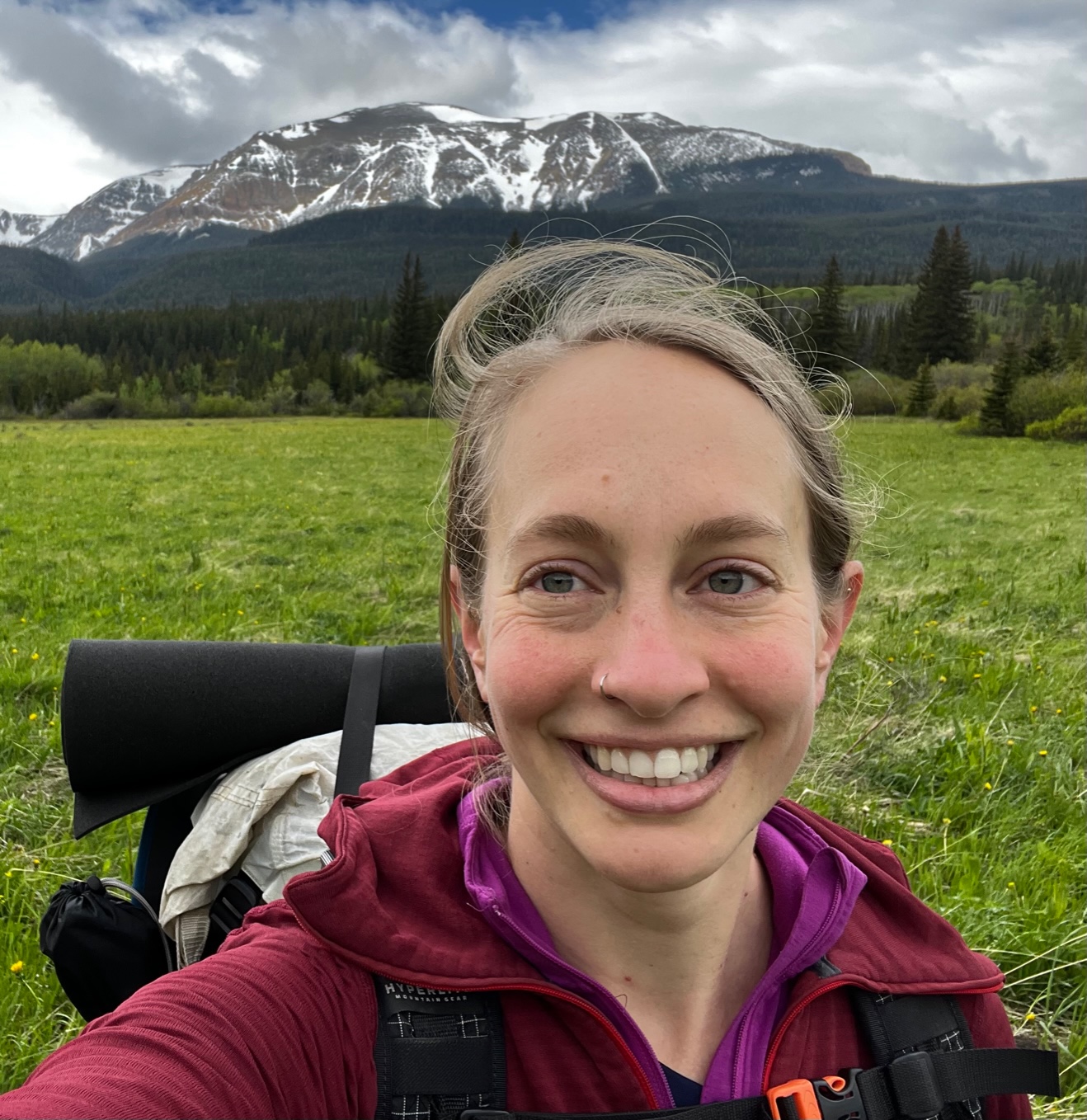
Dakota Spear is heading off on a 2,600-mile walk to raise money for the National Resources Defense Council.
I chose the Natural Resources Defense Council (NRDC) because I wanted to do my part to ensure these sorts of wilderness areas are available for many more generations to come.
Dakota Spear
A Gates Cambridge alumna is planning a marathon six-month, 2,600 mile walk from the Mexican to the Canadian border to raise money for a conservation charity.
Dakota Spear, who did an MPhil in Zoology, will be doing a "thru-hike" of the Pacific Crest Trail with a friend starting this April. Their aim is to raise $5,000 for the Natural Resources Defense Council (NRDC), a US-based non-profit that works to protect natural resources and combat climate change through research, litigation and activism.
Dakota [2015] says: "The Pacific Crest Trail has been something I've been interested in since earning my undergraduate degree in California. I did quite a bit of backpacking and hiking both in the California desert and in the high Sierra, and love the excitement and isolation of being 50 miles from any road with more stars than you've ever seen and mountains or Joshua Trees as far as the eye can see. I've always liked challenging myself and I love being outside more than anything."
Only around 40% of people who start manage to complete the entire trail which is solely through national forests and national parks.
Dakota adds that she was also motivated by a desire to give back and to aid conservation work. She says: "I chose the Natural Resources Defense Council (NRDC) because I wanted to do my part to ensure these sorts of wilderness areas are available for many more generations to come. The current political climate in the United States also was no small influence. The new director of the Environmental Protection Agency, as well as the President, are blatant climate change deniers. Climate change is one of the most frightening, most potentially destructive, and most difficult problems facing my generation. It is not only a conservation issue but an environmental justice issue, and the NRDC is dedicated to combating global climate change in a number of intersectional ways."
Dakota's research interests has been closely tied to conservation work. At Cambridge she studied the effects of various agricultural management practices in oil palm plantations on spider communities and their contributions to beneficial ecological functions. She says: "Oil palm is currently one of the most destructive crops, the cause of widespread rainforest clear-cutting, and spiders are critical to pest control and balanced arthropod populations in agricultural systems. My research has always been conservation-focused; I study the ways that humans influence, work with, benefit from, and potentially harm natural ecosystems. The NRDC seemed a natural outgrowth of my interest in conservation."
When she finishes the hike, Dakota hopes to start a career working directly for a non-profit or NGO similar to the NRDC.
*Dakota's fundraiser page can be found here. She adds that she would also be thrilled to have any alumni or scholars who are interested to join her and her friend on the trail for any length of time.

Dakota Spear
- Alumni
- United States
- 2015 MPhil Biological Science (Zoology)
- Churchill College
I currently live and work in Seattle, Washington, USA. For more information please see my LinkedIn page.
Previous Education
Pomona College












